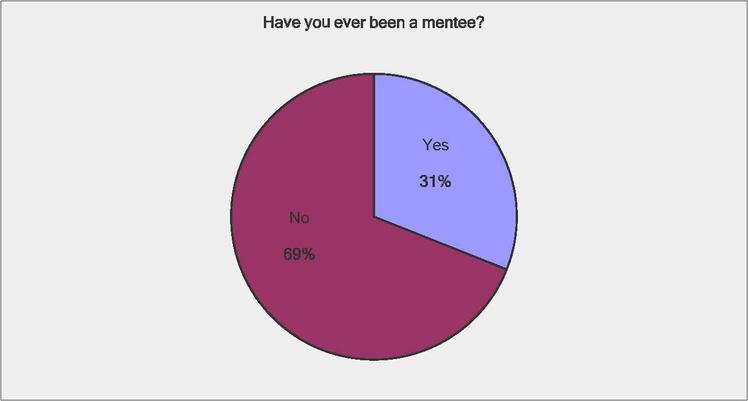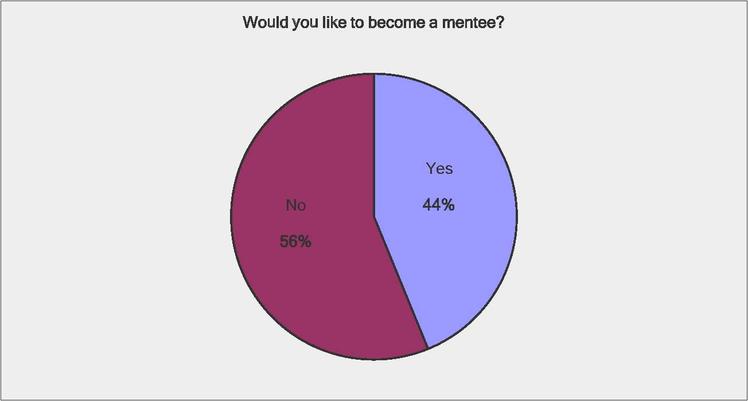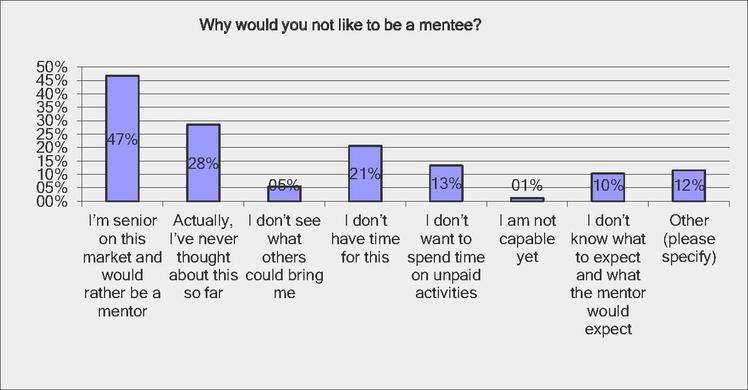Mentoring for Translators and Interpreters
SURVEY RESULTS - Analysis of the answers
PART III: MENTEE
The third part of the survey was meant to get more information on the mentees. The first question directed the respondents to different sub-questions, targeting on the one hand those who have already acted as mentees in the translation industry (Question 33) and on the other hand, people who have not (Question 31). Regarding this second group, various questions were asked to those who expressed the will to become a mentee one day (Question 40) and those who would rather not (Question 32). After having explained their dislike on the aspect of mentoring, these last respondents were immediately directed to the end of the survey (Question 52).
Question 30: Have you ever been a mentee?
432 persons answered this question. A significant majority of 69% (299) had never been a mentee, whereas a third (134) had been.

Question 31: Would you like to become a mentee?
A majority of 168 persons (56%) would not like to become a mentee, whereas over 44% do (131).

Question 32: Why would you not like to be a mentee?
(multiple choices)
The biggest group (47% or 77 respondents out of a total of 165 since 3 participants skipped this question) state that they are senior in this industry and would rather be a mentor. The second largest group (47 respondents equalling 28%) had never given it a thought until now. 21% (34)do not have time for mentoring, followed by 22 answerers who do not want to spend time on unpaid activities. 17 respondents (10%) would not like to become a mentee, due to potentially unclear expectations on the mentee’s or the mentor’s side. At the lower end of the list,9 participants do not see what others could bring them, only outdone by the smallest group of only 2 respondents who do not feel capable as yet.
This question offered the opportunity to explain other reasons for not wanting to become a mentee. People who chose this option (19) mentioned reasons like:
- Being an academic (1)
- Needing training in some areas (DTP, CAT tools, etc.), but not needing a mentor (1)
- Mentors are not useful (1)
- Already sharing their experience, guidance and knowledge with other colleagues, which is good enough for them (3)
- Being used to learning on their own (1)
- Preferring to be “really” independent (1)
- Being already autonomous, even if they did not consider themselves to be senior (6)
- Some also regretted not having been able to take advantage of such programs when they started out (2)
- 4 answers were not relevant

(< Back to Part 2: Mentor - Future or Continuing Mentoring)
